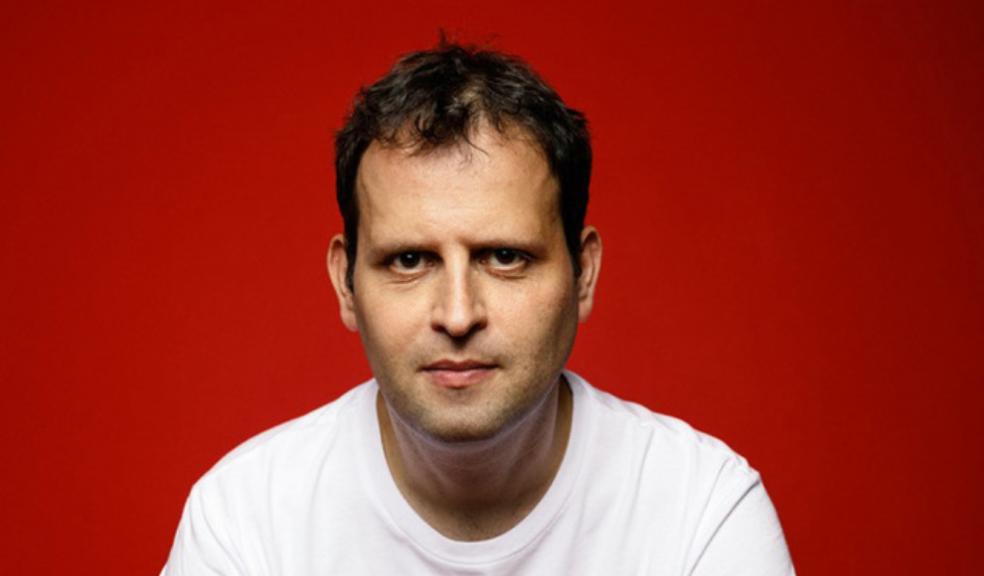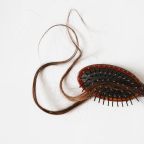
Adam Kay: 'Doctors shouldn't be afraid to talk about their struggles'
Adam Kay still can't quite believe that This Is Going To Hurt, his hilarious and heartbreaking diaries of his time as a junior doctor, launched him into the literary stratosphere last year, outselling Michelle Obama's memoir and shifting 1.5 million copies.
A year on, he's still at the top of the bestseller lists.
"I didn't think the first book would have any success at all," he insists, with an air of bewilderment. "I wanted doctors to be able to read the book and say to their mates, 'This is what it's like, this is why I've missed your birthday parties'."
Specialising in obstetrics and gynaecology ( known as 'brats and t***s' in med school), his diaries recorded the highs and lows of his life as an overworked and often overwhelmed young doctor in an overstretched NHS, as he tackled a myriad tasks, removing objects stuck up orifices, dealing with the fallout of sexual misadventures and handling a variety of birthing shenanigans – the anecdotes delivered as meticulously as the babies.
His latest book, Twas The Nightshift Before Christmas, offers more of the same, with necessary bauble removals, fairy light mishaps and turkey bones trapped in tracheas all playing their part. Kay worked six out of the seven Christmases he was a practising doctor, so has plenty to go on.
There's the child whose faced turned green because he'd stuck an LED fairy light up his nose; the bloke whose festive fancy dress as a turkey wrapped head to foot in tin foil landed him in hospital with severe dehydration; the suggestion from a father-to-be that Kay could engineer the delivery of twins either side of New Year (which he didn't).
Today, Kay, 39, has a very different profession as a writer and comedian. He's embarking on a regional tour, which has almost sold out, and is currently working with his husband, TV producer James Farrell, on an eight-part BBC Two TV adaptation of his first book, which starts filming in the New Year, although he won't be in it.
"We're going to get someone much more handsome," he chuckles.
He's also in a much better state of health mentally and physically than he was when he quit being a doctor in 2010.
"I've got a work-life balance for the first time in my life. If you're in medicine, you don't have time for hobbies or do anything other than your job. Now, I make sure I block off time to go on holiday, and that I'm not working every day of the week.
"Also, in my work now, the stakes are zero. If I write a terrible article, what's the worst that can happen? The newspaper doesn't employ me again? But no-one dies."
He quit his job after a caesarean section went horribly wrong on a shift when he was the most senior person on the ward.
The patient had an undiagnosed placenta praevia, the baby died and the mother lost 12 litres of blood and ended up having a hysterectomy – it was hugely traumatic for Kay, not least because he had been in charge when the emergency kicked off.
When he tried to write up his operation notes, he just cried for an hour. He continued working as a doctor for a while without laughing, he recalls. He says he should have had counselling. His funny diaries stopped.
"I'd had many difficult days at work prior to that and my coping mechanisms were enough to deal with those. But there was a maximum I could deal with and it was that day. If that day hadn't happened, I would have continued as a doctor but the truth is, that day would have happened at some point."
Up until then, writing his diaries had been his release.
"I didn't realise it at the time, but that was my therapy, and focusing on the funny stuff. A lot of doctors turn to alcohol or use recreational substances, more than we'd like to talk about.
"Many can't cope and end up leaving their profession, and one doctor takes their own life every three weeks. That should be a headline."
Fittingly, the funny festive anecdotes in the latest book are juxtaposed with heartbreaking ones.
There's a particularly traumatic diary entry in December 2006, when Kay performed a surgical termination at 19 weeks on a patient with a cardiac condition, which meant it was unlikely she would live if she continued her pregnancy.
He didn't want to do it, describing it as 'one more trauma to push down into a box that's already full to bursting'. The professor in charge tried to lighten the mood with cheery banter, but when the operation was over, put his hand on Kay's shoulder and squeezed hard. He understood Kay's distress.
After he quit medicine, Kay felt in limbo, he says, not opening up to his friends and family about his reasons for quitting.
"They knew I'd left medicine, they didn't know why. I didn't tell them because I felt shame. I felt I'd failed and didn't want to relive what had happened."
"I don't know whether I technically had PTSD (Post Traumatic Stress Disorder) but I never saw a psychiatrist," he continues. "I used to wake up regularly in the middle of the night and my pulse would be racing and I'd be in a cold sweat and back in that operating theatre. That no longer happens because I'm talking about it, and doing my own therapy by being open about it."
He pursued a new career in writing for television and performing stand-up comedy, which really took off when, in support of the striking junior doctors in 2016, he read from his diaries at the Edinburgh Festival. It was this show which sparked the book This Is Going To Hurt.
Now, he is keen to bang the drum about the importance of mental health among those in the medical profession.
"It's a very emotive topic and it affected me, but ultimately, I want the public to think of doctors as humans – and I don't think we should be afraid to talk about getting sad and struggling."
When health secretary Matt Hancock met him last year, Kay stressed the need for more funding for the wellbeing of doctors.
"Shortly after our meeting he announced there was going to be significant extra funding for exactly that and he namechecked my book as a catalyst for that. That's the best thing that's happened to me from the book," he says proudly.
"As a firm part of the syllabus, we need to talk about psychological preparedness. You need to make sure you have a shoulder to cry on, that you don't put it all away in a box."
He says he now looks after his mental health much better, goes running twice a week and eats more healthily. But he still misses being a doctor.
"I miss the reason I went into the job in the first place, which was to help people. Even when driving home four hours late covered in the blood that you've been too tired to wash off your face, you're still smiling because you did a good thing, bringing in life and saving life on labour ward.
"I think I've done my last shift on a ward, but I don't think I've done my last time in the NHS. When my star has faded as a writer and I've reached my expiry date, I'd love to help with policy and education and maybe teach."
Twas The Nightshift Before Christmas by Adam Kay is published by Picador, priced £9.99. Available now. For dates and tickets for the new live show go to adamkay.co.uk.













